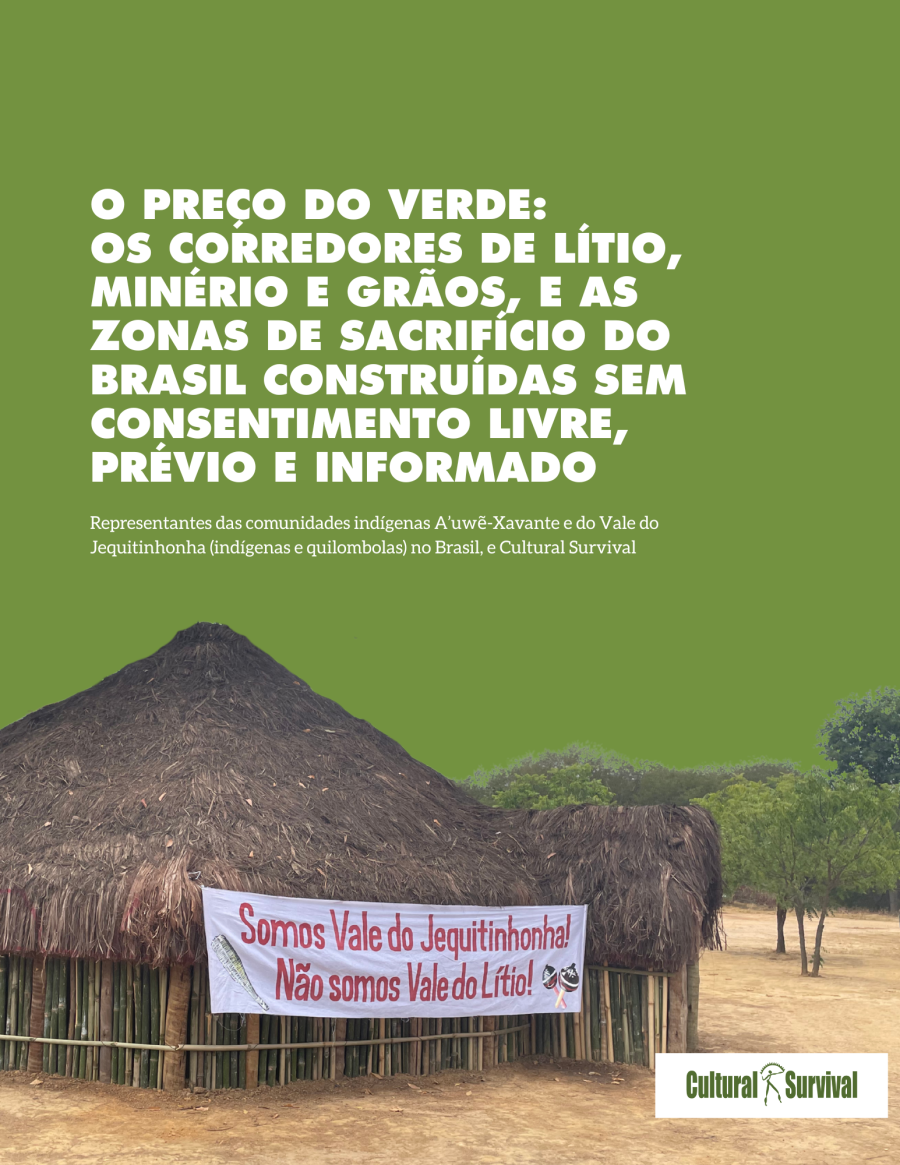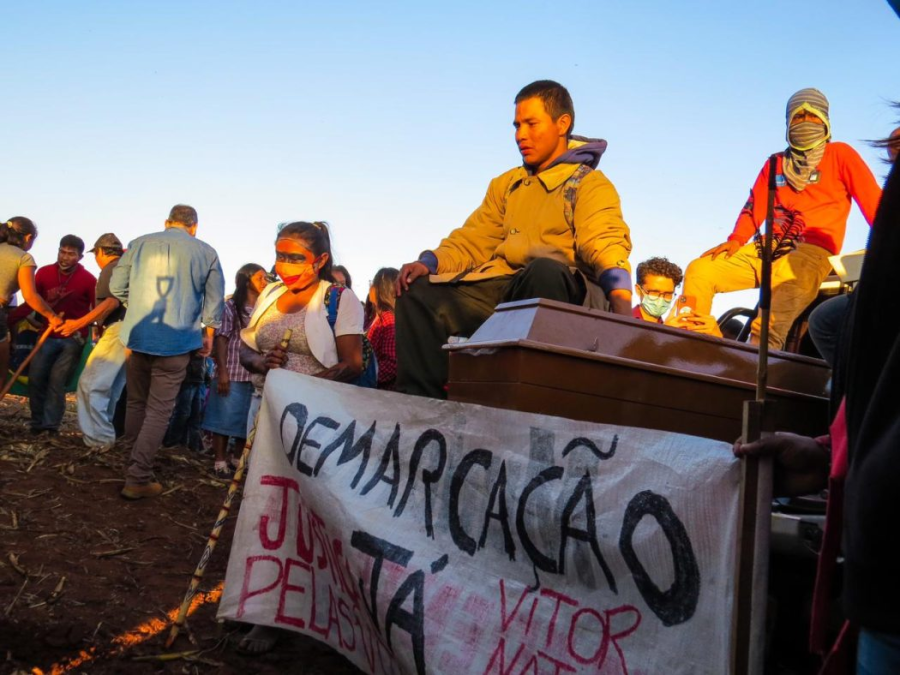Indigenous peoples are actively defending their forests, their cultures and their ways of life, not merely in a few isolated incidents but in places as distant and different as Brazil and Malaysia. Their heroic efforts are often undertaken at great personal risk, even under the threat of death. More than one person per day has died while attempting to prevent the invasion and destruction of the world's tropical forests; many more have been arrested, persecuted of forced to flee their forest homes.
Virtually all the world's tropical forests are populated, usually by indigenous peoples. In order for local, state or international interests to exploit forest resources, the rights of indigenous groups must be denied and the groups themselves displaced. It is no accident, therefore, that indigenous peoples are disappearing at an even faster rate than the tropical forests upon which they depend. Their own survival in intricately linked with that of their forests. They also represent our best first line of defense against the destruction of the forests.
In Malaysia
The Penan and other tribal groups in Sarawak, Malaysia, have set up blockades to stop logging on their lands. Logging will end their hunting-and-gathering way of life. Although the Penan technically own the land, they do not own the trees. In the fall of 1987, Penan were first arrested for interfering with the logging industry; they are scheduled to come to trial on 24 April 1989. Twelve Penan were arrested in December and will go trial in August 1989. In January 1989, another 127 Penan who were occupying blockades were arrested in Sarawak; as of early February, they still remain in jail. Those arrested must receive prior warning from the Forestry Department. The Penan arrested claim that none of them were given a wanting.
Because the total number of Penan is only 2,000 the arrest and possible long-term incarceration of such a large percentage of their population poses serious threats to the group's future. Similarly, fines for a group that lives almost entirely outside the monetary economy would pose severe problems.
Some 200 villagers in neighboring Sabah, the Malaysian state of North Borneo, set up roadblocks to back their demands for compensation for damage caused by logging. Villagers threatened to burn down the bridges linking five logging camps in the area if their demands are not met. The local commissioner of police threatened to invoke the Internal Security Act, first introduced by the British in their struggle against communist insurgents, against those involved in activities that threaten local "security". Since independence, the act has been used against Malaysians engaged in civil rights, environmental and peaceful political actions. Those detained under the act can be held indefinitely without charge or trial.
In Brazil
The US media has devoted much coverage to the murder of Francisco "Chico" Mendes, leader of the Brazilian rubber tappers' union and internationally recognized protector of the rain forest. What is less well understood is that Mendes and other rubber tappers reached out to Indian communities to overcome the century-old history of violence and mistrust that exists between the two groups and to identify common problems and collaborative solutions.
Indians from at least 10 groups, too, have been killed in Brazil in the last year for their efforts to protect their lands and their way of life. In March 1988, 14 Ticuna Indians (half of them children) were killed, apparently as a result of a long-standing dispute with a local timber merchant about his illegal extraction of timber from their land.
More than 100 Macuxí Indians from northern Brazil were briefly detained on 24 January 1988 and again between 15 April and 5 May for attempting to build a communal house on lands that a cattle rancher claimed were his. Seven were held incommunicado until 12 May. On 5 September, Donaldo Macuxí was murdered in his canoe. Although three eyewitnesses identified the murderer for the police, he has not been arrested. Velario Damasio Macuxí 17, was arrested on 22 October and found dead in his police cell the next day. Other Macuxí prisoners say that he was beaten severely by the local police. These youths were released and told to keep quiet about the incident.
In April 1988, gold miners who had illegally invaded Yanomami Indian territory killed as many as 20 Yanomami who were buried in the mine tailings. In a separate incident, a Yanomamo child was killed in April and her father severely wounded. In May, gold miners killed a two-year-old Yanomamo girl and seriously wounded three adults. Reports of Yanomami wounded by miners have been received each month through November 1988.
The Brazilian government is apparently not content to merely let the murders of Indians go unpunished. Individuals who have received death threats have either been given inadequate or no protection under the law. The case of the two Kayapó leaders, Paulinho Paiakan and Kube-i Kayapó, shows that the Brazilian government is not willing to give Indians the right of free speech.
In Washington
International environmental organizations have been garnering great publicity through the media's increase focus on the destruction of rain forests and the arrests and killings of noted Indians and rubber tappers. This public spotlight has allowed such groups to discuss the importance of rain forests, to decry their destruction, to address the role of industrialized countries in the ongoing destruction of tropical forests and to raise funds. It is essential that some of these funds be returned to those groups who put their lives on the line every day. In Malaysia and Brazil alone, indigenous peoples, rubber tappers and members of local environmental groups have been marked for persecution and death because those governments realize that as long as the rain forests are occupied their resources will be harder to exploit. International environmental organizations should learn from this example. Local people need help-publicity, money and ideas - to protect their forests. In such a desperate context, then, it becomes trivial to "just say no."
Article copyright Cultural Survival, Inc.



